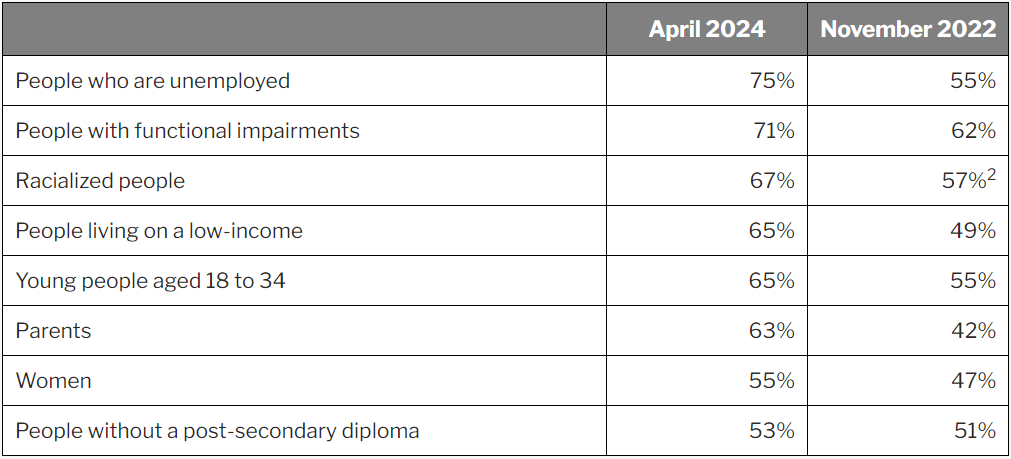
Balancing expenses hurting workers' productivity, mental health, says expert

Nearly 9 in 10 (86%) of people in Quebec are experiencing financial anxiety to varying degrees, and 48% are feeling moderate to extreme levels of financial stress, according to a recent report.
The percentage of those experiencing high levels of financial anxiety has increased from 42% in November 2022, according to the Centraide of Greater Montreal.
Those belonging to vulnerable populations are heavily affected by the surge in financial anxiety, according to the report.

Source: Centraide of Greater Montreal
Many Canadians nearing retirement are in bad shape financially, according to a previous report from the Ontario Securities Commission (OSC).
Nearly 80% of Quebecers struggle to sleep because of their finances, and 64% said that they have trouble concentrating at work or school, according to the Centraide of Greater Montreal’s survey of 2,002 respondents, conducted between Feb. 12 and Feb. 27, 2024.
Also, about half (56%) of respondents say that they are worried about their food expenses (56%) and the cost of housing (48%).
Six in 10 (60%) of 18- to 34-year-olds fear they will never have enough money to own their own home. And about half (48%) are worried about a major unexpected expense, a rate that rises to 96% among people experiencing extreme anxiety.
"The goal of the financial anxiety index is to identify people's concerns about their financial health and track changes in these concerns over time. The rise in this index shows that financial anxiety has persisted for a large number of Quebeckers," says Christian Bourque, executive vice president at Leger. "So many people are walking a tightrope, and this constant balancing act, in which every expense risks knocking them over, not only compromises their quality of life but also impacts their mental health."
Nearly seven in 10 employees say that their mental health stayed the same or worsened in the past year, according to a previous Calm.com survey.
The issue of financial anxiety among workers should be a concern for employers, according to Enrich Financial Wellness, which offers customized financial wellness programs for employers and financial institutions.
“When employees are under stress, both performance and productivity can suffer a decline,” it says. “Stress can also impair decision-making, resulting in task errors or incomplete assignments. These issues not only affect job performance but also employee well-being in the long run.”
“Therefore, it's essential for employers to find ways to assist their employees,” Enrich adds.
Here’s how employers can help workers in their financial wellness journey, according to Debasis Samanta, founder of Aarogya pay:
“Prioritizing financial wellness at work is not just a corporate responsibility; it's an investment in the prosperity and security of employees,” says Samanta.
“By implementing robust strategies for financial education, assistance, and offering impactful benefits, organizations can create an environment where employees thrive both professionally and financially. As the workplace landscape evolves, committing to the financial well-being of employees is a strategic move that not only sets organizations apart but also builds a foundation for sustained success.
About 19.5 million Canadians are currently facing financial vulnerability, according to a previous report from the Financial Resilience Institute.